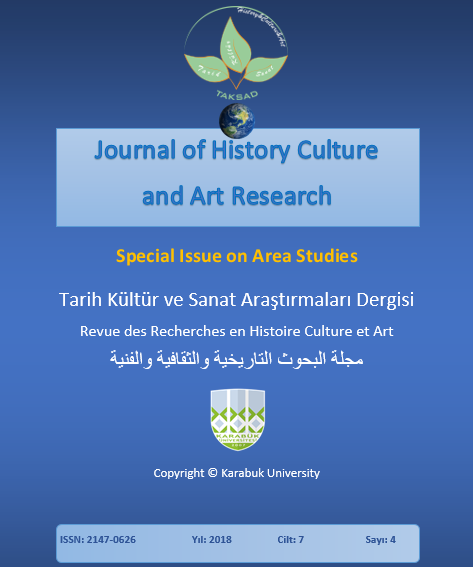Mitigation in the Scientific Discourse
DOI:
https://doi.org/10.7596/taksad.v7i4.1839Keywords:
Discourse, Mitigation, Deixis, Hedging, Strategy and tactics.Abstract
The article is devoted to the study of mitigation strategies and tactics in scientific discourse on the material of English, German and Russian languages. Objectivity, accuracy, consistency and clarity of presentation are traditionally distinguished as the main style-forming factors of scientific discursive practice focused on scientific knowledge. At the same time, the anthropocentrism of modern linguistic science naturally led to the inclusion in the focus of research interest of the subjective components of the scientific discourse, in which the personality of the addressee of the scientific text is reflected and to which the category of mitigation can be properly attributed. The strategy of assertive mitigation is realized in the scientific text through ritualized tactics of deictic depersonalization and modalization. These tactics reflect the interaction of two tendencies - the subjective (the author's desire to show the scientific significance of his personal contribution to scientific research, or, on the contrary, to preserve the "face" by softening the categoricity of the presentation) and objective (the desire to present only facts and strong evidence). The paper proves that the assertive mitigation strategy realized in the analyzed languages by ritualized tactics of depersonalization and modalization plays an important role in scientific discourse and serves, in the final analysis, to preserve the "face" of the addressee of the scientific text.
References
Auer, P. & Baßler, H. (eds.) (2003). Der Stil der Wissenschaft. Reden und Schreiben von Wissenschaftlern. Campus.
Breitkopf, A. (2005). Hedging in deutschen und russischen wissenschaftlichen Texten: Sprachliche und funktionale Unterschiede / Sprache lehren – Sprache lernen (Materialien Deutsch als Fremdsprache) (pp. 293-325), Hgg. Wolff A., Riemer C., Neubauer F. - Regensburg: Iudicium.
Caffi, C. (2007). Mitigation. Amsterdam: Elsevier.
Dönninghaus, C. (2003). Is scientific communication "direct"? Direct and indirect communication.
Fraser, B. (1980). Conversational mitigation. Journal of Pragmatics, 4, 341-350.
Karasik, V. I. (2004). Language circle: personality, concept, discourse.
Komarova, Y. A. (2008). Objectivity as an important style forming factor of the scientific English speech. Journal of the Chelyabinsk State University, 16(117), 90-95.
Kubryakova, E. S. (2004). Language and knowledge: On the way of language knowledge acquisition: Parts of speech from the cognitive point of view. A language role in knowledge of the world. Moscow: Languages of Slavic culture.
Langner, M. (1994). Zur kommunikativen Funktion von Abschwächungen: pragma- und soziolinguistische Untersuchungen.
Ryabtseva, N. K. (2005). Language and natural intelligence. Moscow: Academia.
Schröder, H. (1997). Hedging und wissenschaftlicher Diskurs.: Darstellungsformen der Wissenschaften im Kontrast. Lutz/Niederhauser, Jцrg- Tübingen: Gunter Narr Verlag.
Takhtarova, S. S. (2008). Ethno-cultural category of mitigation in communicative aspect. Philological Sciences, 4, 55-61.
Tsurikova, L. V. (2006). Cross-cultural interaction from positions of cognitive discource approaches. Questions of cognitive linguistics, 1, 5-15.
Vorderwülbecke, K. (2002). Höflichkeit und Höflichkeitsformen. In H. H. Lüger (ed.), Höflichkeitsstile, Vol. 2, (pp. 27-45).
Downloads
Published
How to Cite
Issue
Section
License
All papers licensed under Creative Commons 4.0 CC-BY.- Share — copy and redistribute the material in any medium or format
- Adapt — remix, transform, and build upon the material for any purpose, even commercially.
Under the following terms:
Attribution — You must give appropriate credit, provide a link to the license, and indicate if changes were made. You may do so in any reasonable manner, but not in any way that suggests the licensor endorses you or your use.
- No additional restrictions — You may not apply legal terms or technological measures that legally restrict others from doing anything the license permits.







